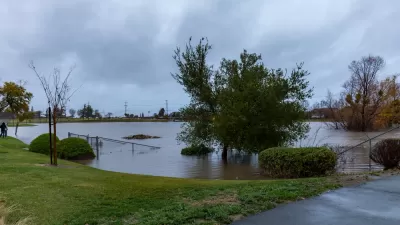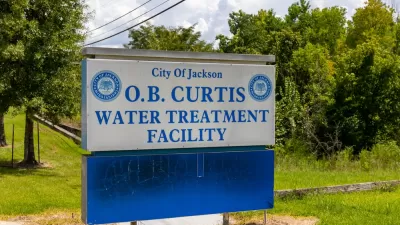As California's drought drags on, the Delta—which provides water to much of the state—has come to symbolize the tension among water users with competing interests. But the strained resource has also prompted ambitious initiatives for sustainability.

Management of the Delta falls to the Delta Watermaster, Michael George, who unpacked the core conflicts surrounding the distribution of water from the region for VerdeXchange News.
In his analysis, he corrects what he sees as misconceptions about agricultural water use from urban residents in the Southland, who believe that farmers waste water with outdated technology and practices.
In fact, George points out, agricultural users have been hit hard by the drought: Recently, the state’s complicated system for administering water rights required some farmers to stop taking water from the Delta altogether. According to him, the Central Valley has taken on the shortage with "heroic" management of their crops, largely succeeding in increasing efficiency and reducing overall use. Urbanites just don’t know it—because meanwhile, the state has been growing and so has its demand for agricultural products.
Cities in the Southland have also taken steps to remove strain on the Delta: Los Angeles Mayor Eric Garcetti ordered the DWP to import 50 percent less drinking water by 2024, and city departments are moving toward better management practices, including finding ways to capture and recycle water that currently runs to the ocean.
These programs are undoubtedly helpful, George explains—but much like the measures taken in the Central Valley, they can never be scaled up to achieve 100 percent efficiency.
"Southern California has done a great job of reducing its instantaneous demand on the Delta and other imported water sources," he says. "But it is impossible to imagine sustaining our Southern California economy without a reliable supply of imported water."
George goes on to explain the pros and cons of Governor Brown's controversial plan to update the Delta's conveyance system, and the challenges of diverting water for human use without damaging the ecosystem. And he reminds readers that protecting a shared resource requires a collaborative effort:
"The people of Southern California, who rely to a certain extent on imports from the Delta, are involved in an unbreakable symbiotic relationship with the agricultural interests there. I say the same thing, on a reciprocal basis, to my friends in the agricultural community in the Delta."
FULL STORY: Delta Watermaster Charged With Balancing Water Reliability And Ecosystem Restoration

Planetizen Federal Action Tracker
A weekly monitor of how Trump’s orders and actions are impacting planners and planning in America.

Maui's Vacation Rental Debate Turns Ugly
Verbal attacks, misinformation campaigns and fistfights plague a high-stakes debate to convert thousands of vacation rentals into long-term housing.

Restaurant Patios Were a Pandemic Win — Why Were They so Hard to Keep?
Social distancing requirements and changes in travel patterns prompted cities to pilot new uses for street and sidewalk space. Then it got complicated.

In California Battle of Housing vs. Environment, Housing Just Won
A new state law significantly limits the power of CEQA, an environmental review law that served as a powerful tool for blocking new development.

Boulder Eliminates Parking Minimums Citywide
Officials estimate the cost of building a single underground parking space at up to $100,000.

Orange County, Florida Adopts Largest US “Sprawl Repair” Code
The ‘Orange Code’ seeks to rectify decades of sprawl-inducing, car-oriented development.
Urban Design for Planners 1: Software Tools
This six-course series explores essential urban design concepts using open source software and equips planners with the tools they need to participate fully in the urban design process.
Planning for Universal Design
Learn the tools for implementing Universal Design in planning regulations.
Heyer Gruel & Associates PA
JM Goldson LLC
Custer County Colorado
City of Camden Redevelopment Agency
City of Astoria
Transportation Research & Education Center (TREC) at Portland State University
Jefferson Parish Government
Camden Redevelopment Agency
City of Claremont





























